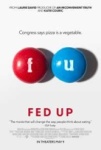Documentary Review: The Truth About Cancer: A Global Quest
Hosted by Ty Bollinger
Watch the trailer here: https://www.youtube.com/watch?v=jXj0a624JC4

“When a man has his health, he has a thousand dreams. When he has lost his health, he has but one.”
Over the past 9 days, I have invested many hours watching all 9 episodes of the docu-series, “The Truth About Cancer: A Global Quest,” hosted by Ty Bollinger.
It was a very informative series that tells the stories of people who have beat cancer through the use of alternative therapies. It describes many different treatments that have been successful in curing cancer when used instead of, or in conjunction with, conventional treatments.
I enjoyed learning about these alternative therapies, and I deeply appreciate all of the hard work the entire crew put into making this information available to us. Some of the “truth” was very disturbing. For example, they told the stories of several pediatric patients who were forced to use conventional treatments, despite the wishes of the child or their parents.
My only criticism about this documentary was that I felt the general attitude toward the conventional methods and conventional doctors and oncologists was overly negative. I do believe there is some good in everything, and while my personal preference would always be to go the natural route first if possible, I have heard of stories where conventional methods have worked successfully for some people, but that is not mentioned in the documentary. Because of the negative stance this took toward conventional treatments, I was very hesitant to share these episodes with friends because I did not want to stir up any negative feelings in those I know who have lost loved ones to cancer using conventional methods. However, I ultimately decided that the past is in the past, and if this information can help save a life in the future, it is important that it gets out there.
After listening to all the stories of the cancer survivors, these are some of the key things I noticed and what I learned about the treatments, tips, and resources that are available:
- FAITH – I noticed that every cancer survivor shown had a deep faith in God and faith in the ability of their own body to heal itself.
- DETOX – I learned that one of the first things these patients did was detox their bodies as part of their treatment plan. Some of the ways they used to detox their colon, kidneys, liver, and lymph nodes were through juicing wheatgrass and other fruits and vegetables, fasting, herbs, coffee enemas, and colonics.
- SUPPORT – Each of these cancer survivors had a deep support system. They were deeply loved and supported by close friends or relatives.
- EMOTIONAL HEALTH was one of the main focuses of their healing process. Eliminating stress from their lives was a key factor in their healing. Some also worked on letting go of their fears, and one spent a considerable amount of time dealing with past pains until he could make peace with each event.
- NUTRITION played a huge role in the healing of all of these patients. They all changed their diets to eliminate sugar and processed foods and to eat a diet of REAL foods. Many of them strictly followed a raw, vegetarian diet during their healing process.
- Many of them added cancer-fighting foods to their diets, such as green pepper, eggplant, turmeric, ginger, wheatgrass, eggplant, and hot peppers.
- ESSENTIAL OILS, especially Frankincense, Myrrh, and Cannabis oil. Sandalwood and lavender oils were also mentioned.
- NATURE. Many of them spent a lot of time out in nature and took advantage of the healing properties of nature. From the sound and smell of the ocean, to the plants that we eat and the sun that shines on our skin to produce Vitamin D, everything in nature is medicinal.
- SUPPLEMENTS. Many of them began taking vitamins, especially Vitamin C, D, B17, LifeOne, and Living Fuel
- Infrared sauna or infrared heating mats
- Light & Sound Therapy
- Oxygen Therapy
- Laetrile – Vitamin B17 from Apricot kernel pits w/hypothermia
- GRATITUDE. Many of them practiced gratitude. In general, they seemed to all have a positive attitude and outlook on life.
- Chiropractic – “The doctor of the future will give no medicine, but will instruct his patients in care of the human frame in a proper diet, and in the cause and prevention of disease.“~Thomas Edison
- Heat therapy – heat kills cancer cells
- IV therapy
- Phytotherapy
- Hydrotherapy
- Micronutrient therapy
- Essiac Tea
- Earthing – Walking barefoot on the beach or in the grass.
- And many other therapies were mentioned.
Here are some resources that were mentioned:
- Burzynski Clinic – antineoplaston treatments for brain tumors
- Biomedical Center (Hoxsey Clinic), Tijuana
- Gerson Therapy – Northern Baja Gerson Center
- Cancer Crackdown
- Rath Research Institute
- The Hilu Institute
- Dr. Joseph Mercola – Mercola.com
- The Budwig Diet
- “Killing Cancer – Not People” by Robert G. Wright
- “Nature’s Cancer Fighting Foods” by Verne Varona
I believe knowledge is power. It is important to know that there are so many other treatment options available in addition to the conventional methods of surgery, chemo, and radiation. There are as many effective treatments out there as there are types of cancer. I personally cannot recommend any of these specific therapies, but I encourage you to do your own research before trying any of them. Having this knowledge could help you save a life one day…possibly even your own.
https://www.youtube.com/watch?v=jXj0a624JC4

